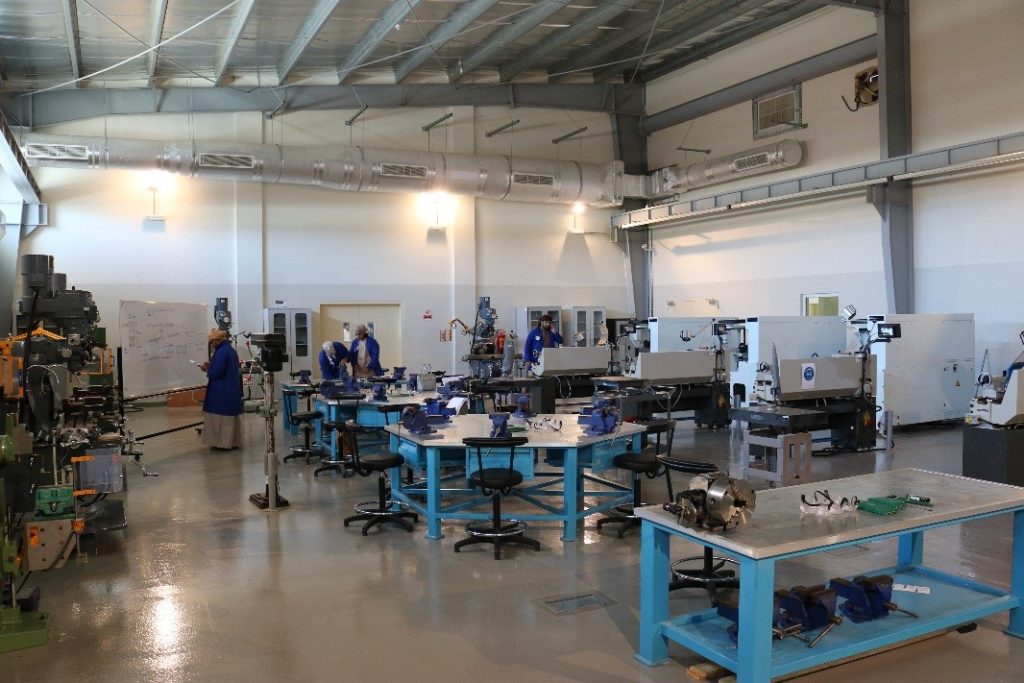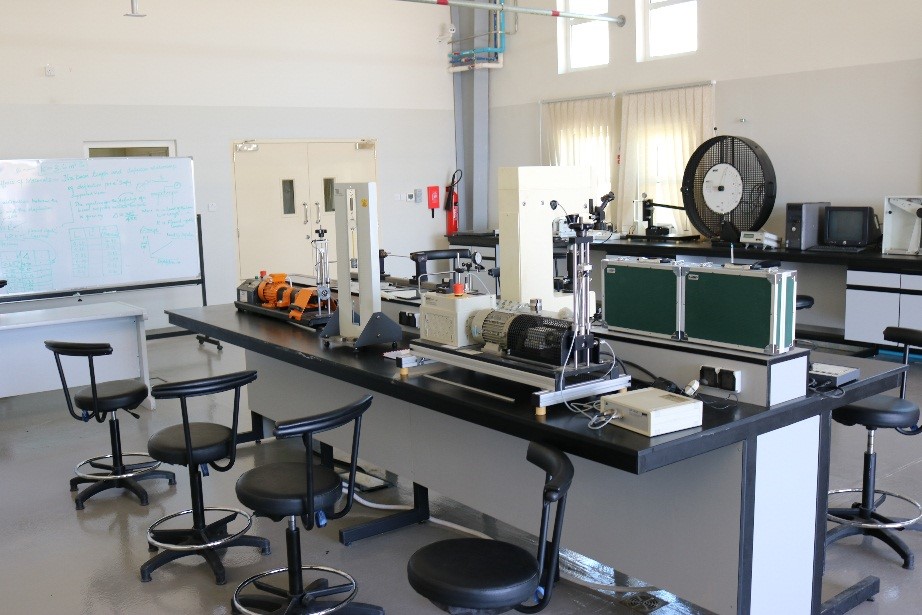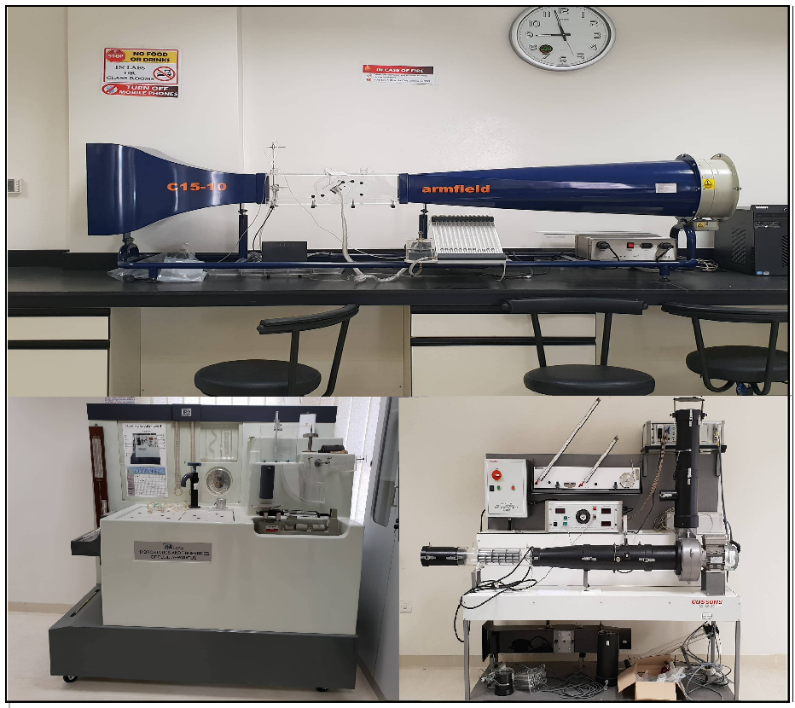Mechanical Dynamics Laboratory
This laboratory covers the following experiments: falling objects, projectile motion, acceleration and force, Newton’s third law, tension, conservation of momentum, conservation of energy: free fall, pendulum, spring, roller coaster; oscillation; rotational inertia. Prerequisite: MECH 274.
Fluid Mechanics Laboratory
This laboratory covers different experiments that may include: measurement of flow rate, Bernoulli’s theorem, center of pressure, floatation characteristics, centrifugal pumps, cavitation in centrifugal pumps, characteristics of two pumps in series, pipe friction losses, friction in bends and fittings, momentum of flow, Pelton turbine, hydraulic Ram Pump, free and forced vortices. Co-requisite: MECH 277.
Thermal Laboratory
This laboratory is meant to compliment the thermodynamics and heat transfer courses. Experiments include: linear heat conduction, radial heat conduction, combined convection and radiation, extended surface heat transfer, heat exchangers, saturation pressure, expansion processes of a perfect gas, steam power plant cycle. Co-requisite: MECH 371.
HVAC and Refrigeration Laboratory
This laboratory covers the following experiments: different air conditioning processes, sensible heating, sensible cooling, humidification and dehumidification. It also covers experiments on the refrigeration cycle, cooling towers, and small and ducted split systems. Prerequisite: MECH 413.
Fuel Cell Laboratory
This laboratory covers the following experiments: the basic functions of the fuel cell system, the characteristic curve of a fuel cell, parameters influencing the characteristic curve, determination of the hydrogen current curve, efficiency of the fuel cell stack, solar power-fuel cell hybrid, and examples of fuel cell applications. Prerequisite: ENGR 100.




